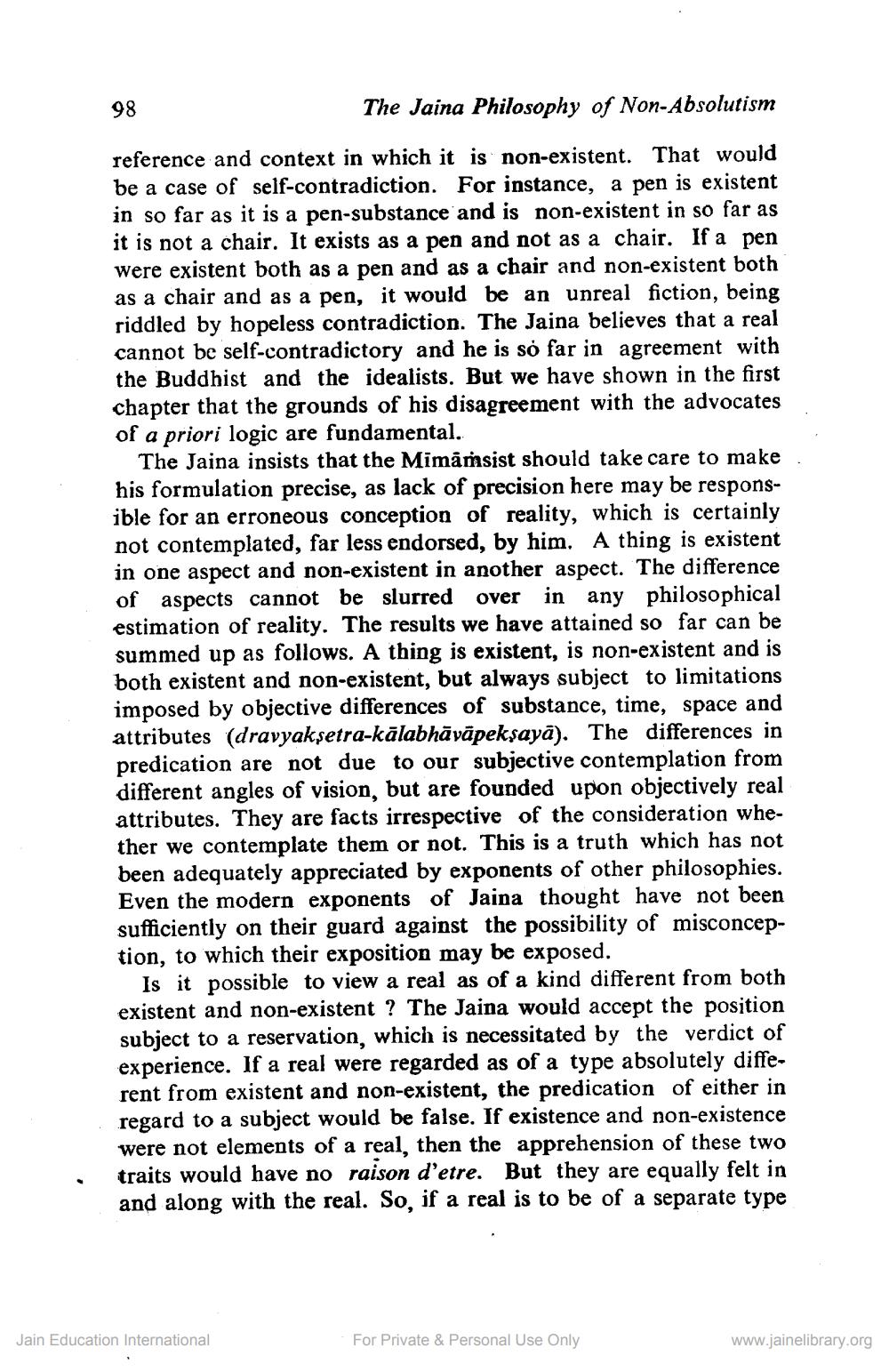________________
98
The Jaina Philosophy of Non-Absolutism
reference and context in which it is non-existent. That would be a case of self-contradiction. For instance, a pen is existent in so far as it is a pen-substance and is non-existent in so far as it is not a chair. It exists as a pen and not as a chair. If a pen were existent both as a pen and as a chair and non-existent both as a chair and as a pen, it would be an unreal fiction, being riddled by hopeless contradiction. The Jaina believes that a real cannot be self-contradictory and he is so far in agreement with the Buddhist and the idealists. But we have shown in the first chapter that the grounds of his disagreement with the advocates of a priori logic are fundamental.
The Jaina insists that the Mimamsist should take care to make his formulation precise, as lack of precision here may be responsible for an erroneous conception of reality, which is certainly not contemplated, far less endorsed, by him. A thing is existent in one aspect and non-existent in another aspect. The difference of aspects cannot be slurred over in any philosophical estimation of reality. The results we have attained so far can be summed up as follows. A thing is existent, is non-existent and is both existent and non-existent, but always subject to limitations imposed by objective differences of substance, time, space and attributes (dravyaksetra-kālabhāvāpeksayā). The differences in predication are not due to our subjective contemplation from different angles of vision, but are founded upon objectively real attributes. They are facts irrespective of the consideration whether we contemplate them or not. This is a truth which has not been adequately appreciated by exponents of other philosophies. Even the modern exponents of Jaina thought have not been sufficiently on their guard against the possibility of misconception, to which their exposition may be exposed.
Is it possible to view a real as of a kind different from both existent and non-existent ? The Jaina would accept the position subject to a reservation, which is necessitated by the verdict of experience. If a real were regarded as of a type absolutely different from existent and non-existent, the predication of either in regard to a subject would be false. If existence and non-existence were not elements of a real, then the apprehension of these two traits would have no raison d'etre. But they are equally felt in and along with the real. So, if a real is to be of a separate type
Jain Education International
For Private & Personal Use Only
www.jainelibrary.org




